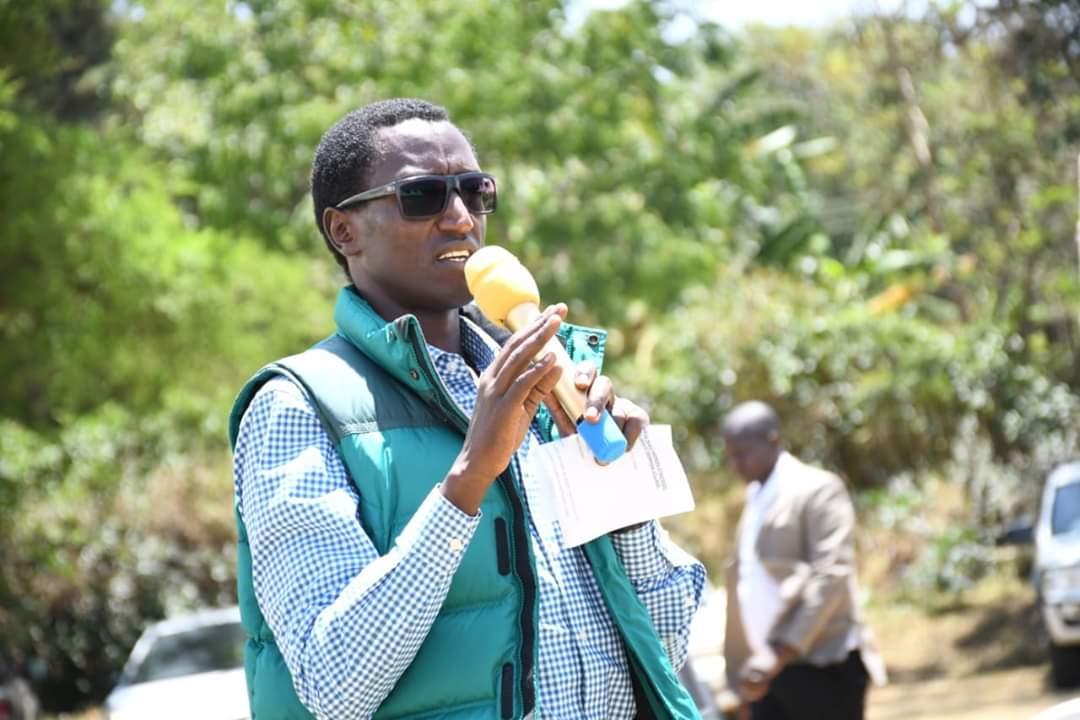How to open a forex trading account in Kenya

Forex trading is legal in Kenya and it is regulated by the Capital Markets Authority (CMA). The CMA has granted operating licenses to six non-dealing Online Forex Brokers and one money manager in Kenya.
It is estimated that there are over 90,000 retail forex traders in Kenya with different brokers, and these traders trade Forex & CFDs. It is important for Kenyan traders to only signup with licensed dealers to ensure that their funds are protected.
Below are the steps that traders should follow to open their forex account with any licensed broker of their choice.
Step 1: Select a Licensed Forex Broker
The CMA has licensed the following Non-dealing forex brokers to operate in Kenya:
- EGM Securities (FXPesa)
- SCFM Ltd. (Scope Markets)
- Pepperstone Markets Kenya
- Exinity East Africa
- HFM investments (HotForex Kenya)
- Windsor Markets
Questions to ask when choosing a forex broker in Kenya
Is the forex broker licensed by the CMA?
Safe Forex Brokers Kenya advises that intending forex traders must make sure to check the list of authorized licensees on the CMA’s website to be sure they are dealing with a licensed broker. This is important as the CMA has put checks and balances in place for a trader to be compensated from the Investor Compensation Fund (ICF) in case the stockbroker goes bankrupt.
A case in point is the Nyaga stockbroker’s collapse in 2008 where the CMA had to compensate investors with 281million KSh. from the ICF after the stockbrokers went bankrupt.
There are currently 6 Non-dealing Online Forex Brokers licensed in Kenya. These are FXPesa, Scope Markets, Exinity, Pepperstone, HotForex & Windsor Markets.
Kenyan traders who intend to trade forex online must trade via one of these regulated forex brokers for the safety of your deposited funds, and protection in case of dispute with the broker.
What are the deposit and withdrawal charges?
Deposits and withdrawals may attract fees depending on the forex broker. The amount in fees charged may also fluctuate depending on the prevailing exchange rate at the time of withdrawal.
Note: It is always advisable to go check the frequently asked questions (FAQ) section on the forex broker’s website for the list of fees charged.
See the table below for withdrawal and deposit charge conditions for 6 forex brokers operating in Kenya.
| FX BROKER | Deposit charge | Withdrawal charge |
| FX Pesa | No | Yes |
| Peperstone | No | No |
| Scope markets | No | Yes |
| Exinity(Metatrader) | varies | Yes |
| HotForex | No | No |
| Windsor | Varies | Varies |
What are the supported currencies for withdrawal?
Forex brokers support withdrawal in certain currencies so it is advisable to check a broker’s website’s FAQ section to see the supported withdrawal currencies.
For FXPesa, withdrawal in USD and KES is allowed for bank transfer and e-wallet methods of withdrawal.
Withdrawal in KES is also allowed for mobile payment methods of withdrawal.
Note: Most brokers allow withdrawal in the same mode the deposit came. For example, if the inflow came via bank transfer the withdrawal will be via bank transfer etc. This is because of the need to leave an audit trail and prevent money laundering activity.
Is the App user-friendly?
When picking a forex broker, it’s advisable to go to your phone’s online play store, search for their trading app and read user reviews about it. You will see any user complaints about the functionality of the App and it gives you an idea of what to expect when using the App.
A good forex App should offer Demo trading, speedy execution of trades, good graphics when displaying charts, etc. The app also has to have a responsive helpline or customer service chatbox.
Are there fees for account inactivity?
Your broker may charge a fee for not using your account after a certain period of time.
For instance, FXPesa charges an inactivity fee if your account has been dormant for 180 calendar days or more. The fee is charged in the currency of the account being charged. Pepperstone markets, on the other hand, does not charge any fee for inactivity.
Check the broker’s website for details of fees.
What is the charge for each Fx lot?
You need to know the fee charged for trading on a currency lot.
Normally a standard lot is 100,000 units so if you open a 0.08 lot trade and your broker charges 5 USD per lot you will be charged 0.08 x 5= 0.4 USD
Check the broker’s website for details of fees.
What is the spread?
A spread is the difference between the buying and selling price of a currency pair and is measured in pips. The lower the spread, the better. Most brokers may not charge any fees but they make up for it in the spread.
The format is BUY/SELL or BID/ASK
The bid price is the highest price the trader will pay for a unit of the currency
The Ask price is the lowest price a forex dealer is willing to sell a unit of the currency
Example
If a unit of GBP/USD currency pair has a BID/ASK price of 1.2501/1.2505
SPREAD is 1.2501 – 1.2505 = 0.0004
This is can be called 4 pips
Most brokers increase the BID/ASK price so as to profit from the increased spread. You need to check how much spread the broker is making as too much of an increase can affect your profit.
Step 2 – Fill the Paperwork with the Broker & Open your Account
Congratulations! You have chosen a broker. Now go ahead and fill out the forms but wait a minute there are some means of identification you need to show.
This is because the CMA in Kenya has mandated forex brokers to properly identify users of their platform and comply with several anti-money laundering laws. Know your customer (KYC)requirements are mandatory so as to prevent a broker’s platform to be used for terrorist financing activity.
After the ID document has been uploaded the status will be pending for some days to make for verification of the authenticity of the means of identification. Typically between 1-3 days.
The duration for verification varies between brokers and you should take this into consideration when choosing a broker.
The following documents will need to be provided before account opening
1. Government-issued means of identification
The following means of identity are allowed in Kenya:
- Identity card
- Driving license
- Passport
You will need to upload your means of identification on the broker’s portal. The means of identification must not be expired, and all four corners must show clearly when uploaded. Also, the upload should show the front and back sides of the means of identification.
After uploading, the means of identification will be verified and the approved or declined outcome will be communicated via email.
2. Proof of address
The following documents can be used to prove an address in Kenya:
- A current utility bill
- Bank statement
- Any document issued by a government department capturing your name and address.
The proof of address document must be a different document from the one submitted as your means of identification.
The address should be verifiable and unambiguous.
The proof of address must also carry your full name which must match your name on your means of identification.
The proof of address must not be older than 3 months.
When uploading to the broker’s portal, be sure that all four corners of the document are captured.
Step 3 – Download the App
After your KYC requirements have been met and your means of identification accepted by the broker. Please go ahead and download the trading App. Check your email for your login details.
Also, check with your broker for system requirements for installing the trading App on your desktop for optimal performance and speed.
There are some good smartphones that are cost-effective. Look for a Smartphone with higher specs like higher RAM & CPU.
The speed of your device is important as you need to execute trades promptly in a very volatile forex market.
Step 5 – Fund your Account
Now it’s time to fund your account. You need to fund your account with no less than the minimum deposit to be specified by the broker.
Generally, you can fund your account through:
- Debit or credit card
- Bank transfer
- Paypal
- MPesa
Forex brokers may not accept Raw Cash to fund accounts because of anti-money laundering requirements and the need to keep an audit trail.
Conclusion
Opening a forex account is easy now and will be even easier in the future thanks to modern technology. Be sure to get your government means of identification handy, and a proof of address document coupled with a good smartphone or computer.
Also, remember to only signup with a regulated forex broker to ensure that your funds are safe. This is the starter guide for every aspiring forex trader.












